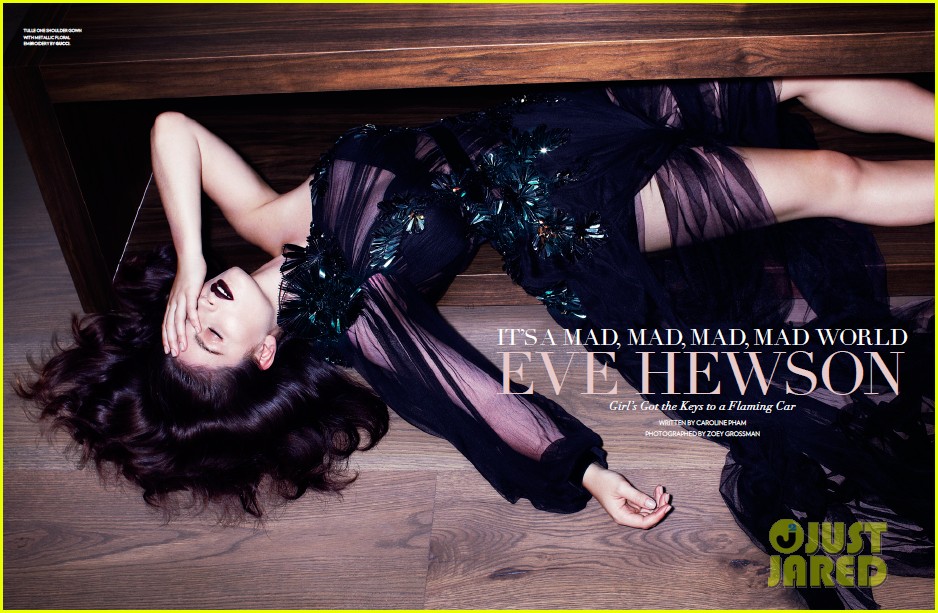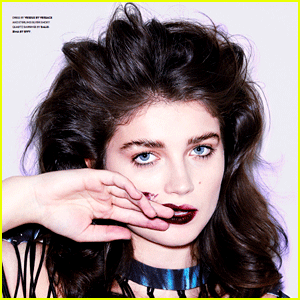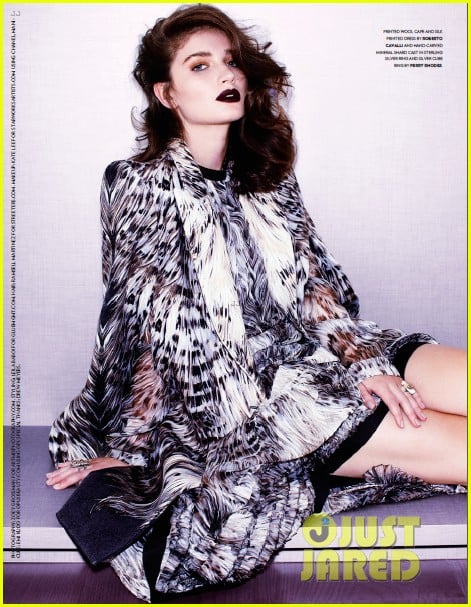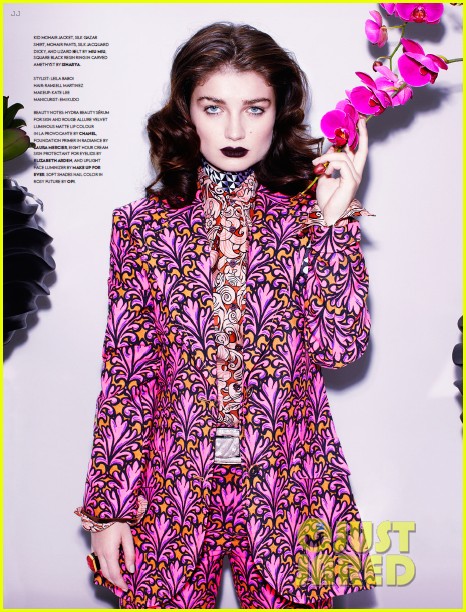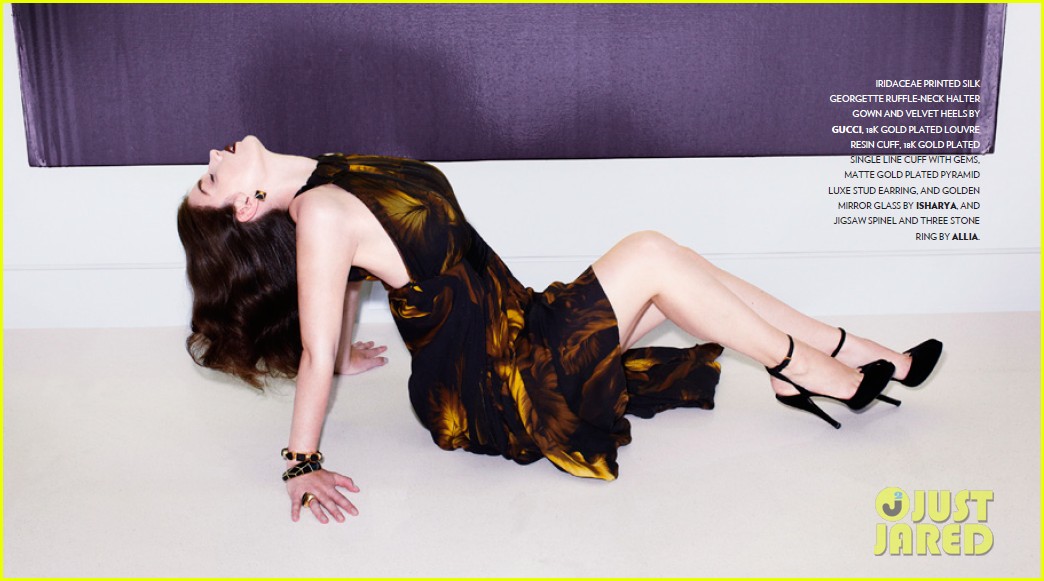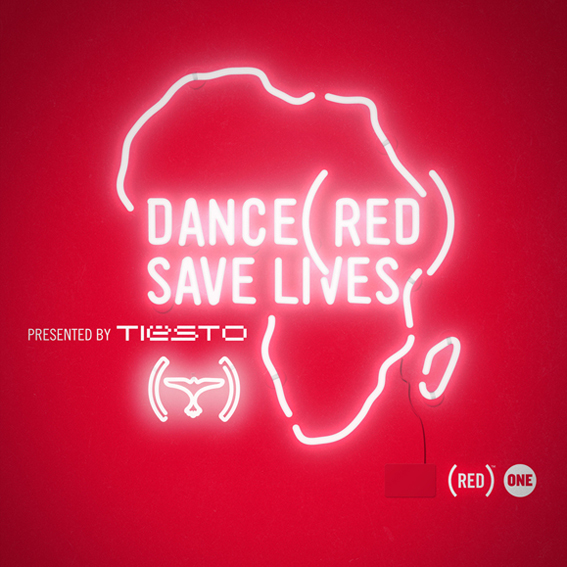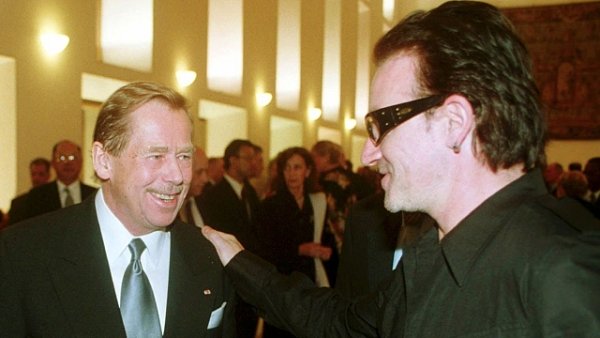Through a partnership with Mr.
Rosso, founder of the Diesel group, fashion products, sourced or made entirely
in Africa, will be sold in Diesel stores under an Diesel+Edun label.
“Bono and I have known Renzo Rosso
for over 10 years,” Ms. Hewson said. “When we decided to travel to Africa to
visit both Renzo’s Millennium Village in Mali and our own cotton farming
program in northern Uganda, we realized that the result would be both an
amazing journey and a collaboration resulting in a line of beautiful clothes
made from our cotton and 100 percent made in Africa.”
Bono himself is reticent about the
overall subject of “Africa rising” and says that he would rather leave it to
his African team to discuss aid to the continent in a wider context.
“There is a bit of a minefield
here which you can choose to ignore. You don’t have to be an expert on this
stuff,” the U2 musician said of his long-term support to African countries.
Bono’s attitude is that Africa is
not a poor continent, but rich in everything: people, land, diversity — and
especially young people, with 60 percent of its population younger than 25
years old.
“In my experience, the
entrepreneurial spirit has always been alive and kicking. In tough
circumstances of extreme poverty, the survival instinct is an innovative one,”
he said, adding that new technology had brought new opportunities to the
continent, like farmers managing their money via smartphone applications.
“People want control over their own destiny. You can see it in the
Arab Spring, you can see it on college campuses, you can see it in on the
streets of Nairobi,” he continued. “Economists predict that between 2010 and
2015, 7 of the 10 fastest-growing economies in the world will be there. For
those who think the 21st century will belong to China, look where the Chinese
are: They’re in Africa!”
Bono’s active participation in founding Edun puts him and Ms. Hewson
in a strong position to follow the code expressed by Ban Ki-moon, the U.N.
secretary general: “Africa does not need charity, it needs investments and
partnership.”
While the entire Edun+Diesel line will be made in Africa, that
goal has not been easy for Edun itself to achieve, although Ms. Hewson plans
for 40 percent of its men’s and women’s ranges to be made in Africa in 2013.
The company, which sold a 49
percent stake to the luxury conglomerate LVMH Moët Hennessy Louis Vuitton in
2009, manufactures its clothing in a variety of countries including China,
Eritrea, Kenya, Madagascar, Morocco, Tanzania, Tunisia and Uganda.
Mr. Rosso is as plainspoken as
Bono when he talks about Africa and his enthusiasm for the new partnership. His
Only the Brave Foundation is philanthropic, but he says the African projects
are founded on good business sense.
“I think working in Africa is both
brave and smart: Brave because we are currently investing our time and money in
building know-how in these parts of the world; and smart because Africa is the
next big market, as the Chinese have already understood before anyone else,” he
said. “I don’t feel I am doing it for philanthropy. We are doing it to generate
sustainable development.”
The foundation’s initiatives, in
spite of the recent political coup in Mali that has destabilized the country,
have included building a secondary school with a dormitory for students from
remote villages, laboratories used for teaching job skills and other modern
facilities.
“Africa is a rich continent: rich in resources, rich in culture,
rich in the ambition to grow permanently” out of its current problems, said the
Italian entrepreneur, who, in addition to the Diesel jeans lines, also owns the
upscale brands of Maison Martin Margiela and Viktor & Rolf as well as the
production specialist Staff International, which has licenses for labels like
DSquared2 and Just Cavalli.
Mr. Rosso says that he wants the
fashion industry not only to bring trade to Africa, but also to channel and
give visibility to the continent’s creativity in style, fabric graphic design
and craftsmanship.
Why this new collaboration? Ms. Hewson
says the benefits will be a “two-way street”: Edun’s Conservation Cotton
Initiative in Uganda will be alongside Diesel denim product skills, as well as
the global commercial clout of the Diesel brand.
To all three, the initiative therefore
is a small, but significant, part of a bigger picture.
As Mr. Rosso puts it: “With this
project we want to show to consumers and to the industry alike, that it is
indeed possible to source, produce and generate sustainable trade — and, hence,
development — in Africa.”
While admitting that “there are kinks
in any industry that need ironing out,” Ms. Hewson’s commitment to Edun, along
with that of her husband, is to create “great clothes,” creating new jobs and
serving consumers along the way.
“We are a tiny company with big
ambitions — one of which was to persuade some of the fashion heavyweights to
take more interest in this part of the world,” she said. “The business
environment is getting easier in many places, and the more people and companies
that show interest, the quicker that will change.”
FEED the World
When Lauren Bush, a scion of the Bush
political family, was a college student in 2003, she traveled with the U.N.
World Food Program as an honorary spokeswoman.
From her understanding of the
importance of U.N. school lunches, in both feeding children and enticing them
to school, came her current project: FEED.
“I would return from these travels to
Latin America, Africa and Asia always inspired to get more people — especially
young people — involved,” said Lauren Bush Lauren, as she became when she
married David Lauren of the Ralph Lauren family in 2011.
Finding it frustrating that world
hunger seemed both an overwhelming and a faraway issue, she was determined to act.
“I had an ‘aha’ moment and came up with
the FEED bag as a way for consumers to give back in a tangible and meaningful
way,” she says.
With help from the fashion industry,
Ms. Bush Lauren produced a burlap and organic cotton bag that went on sale
through Amazon in 2007. The FEED Web site now sells it for $80, which will
provide school meals for a child for a year.
“I designed it to look like the bags of
food rations I saw being distributed. I wanted the aesthetic to be connected
with the cause — very industrial and utilitarian,” she said.
Five years on, 60 million school meals
have been bought through partnerships with Bergdorf Goodman, Tory Burch,
Clarins, DKNY, Gap, Godiva, Pottery Barn and, of course, Ralph Lauren.
“I love being an entrepreneur,” the designer
said, explaining that while 20 percent of her time was spent speaking for the
cause, the rest was a hands-on involvement with design, communication and
partnerships. And, in creating the apparel and accessories that also are sold
on the FEED Web site, she said, “We are able not only to give meals, but to
support artisans’ livelihoods.”
“The combination of business, fashion
and philanthropy is a powerful one,” she continued. “And when done right can
make a huge difference in the world.”
http://www.nytimes.com// http://www.zimbio.com/pictures//http://live.ihtconferences.com

